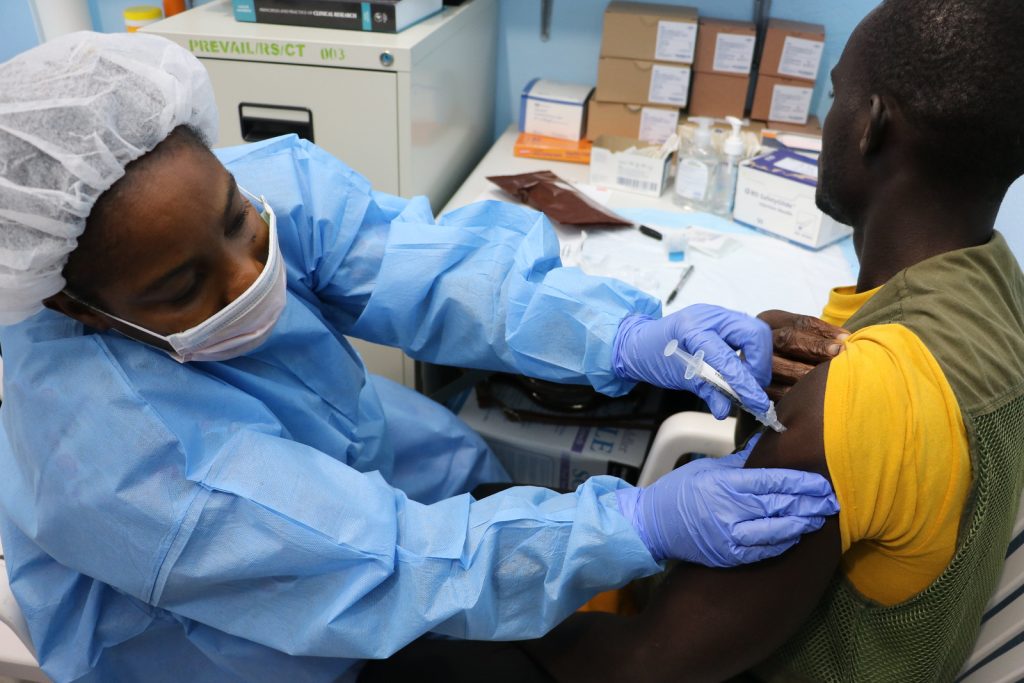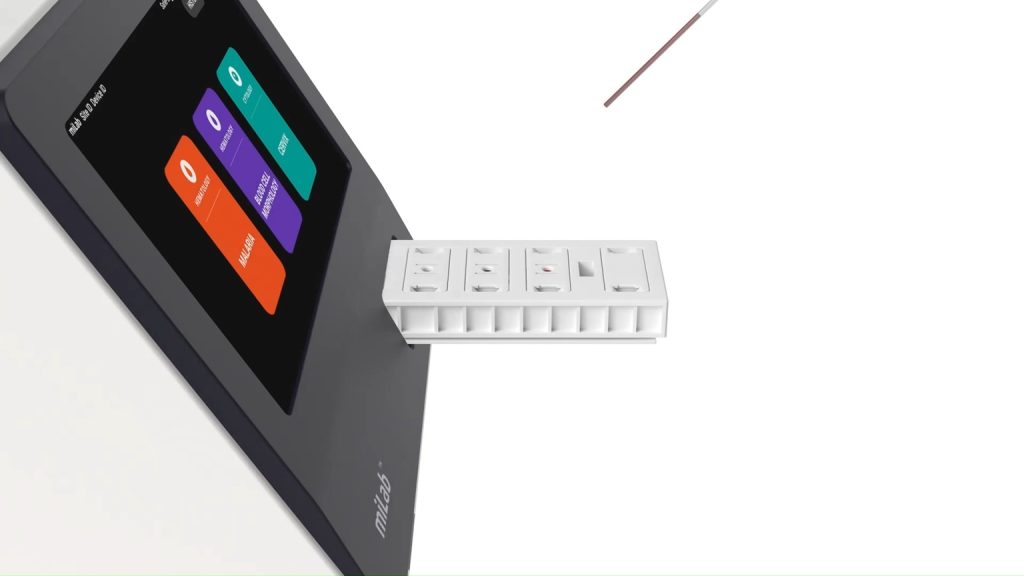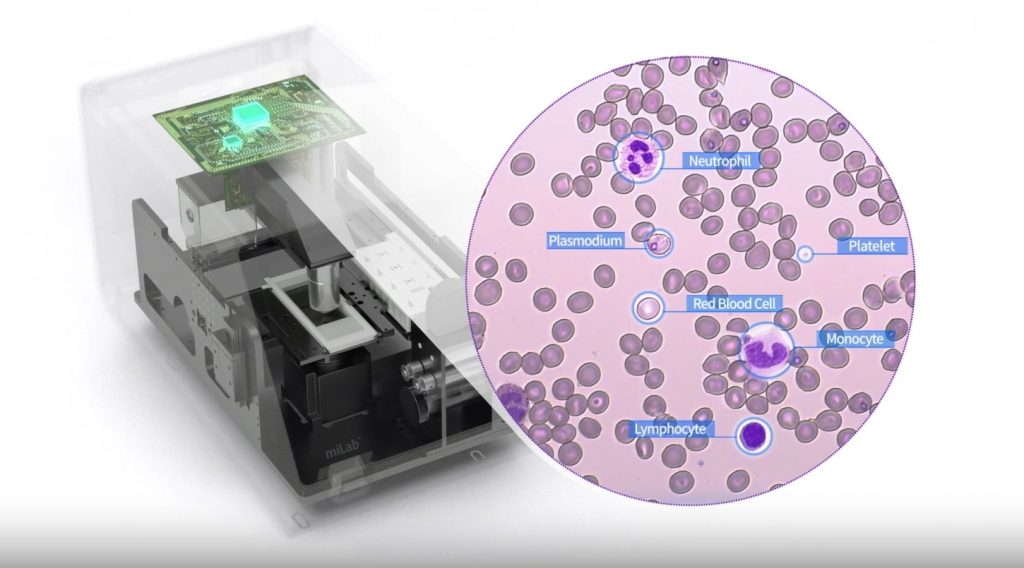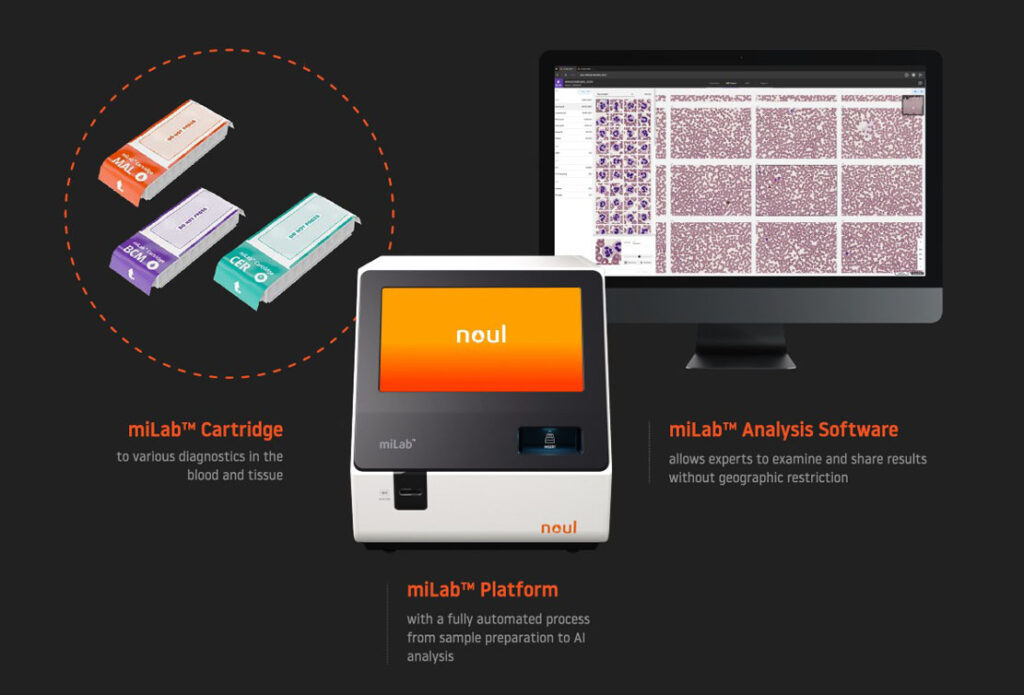WHO World Health Day 2025

Source: WHO
Every April 7, the globe comes together to observe World Health Day 2025. This is a worldwide initiative that’s organized by the World Health Organization (WHO). In 2025, the focus is twofold: “Healthy Beginnings, Hopeful Futures”, a year-long campaign dedicated to maternal and newborn health, and a broader push for precision health and the importance of preventive healthcare, ensuring that diagnostics are accessible to all. The campaign urges global efforts to end preventable maternal and newborn deaths, while also promoting the long-term well-being of women and families.
Achieving these goals will require not only policy shifts, but also innovation—especially in diagnostics. Technological innovation is a game-changer in modern healthcare. That’s why NOUL is at the forefront of advanced diagnostic solutions. NOUL’s miLab™ platform has been spotlighted in UNITAID reports for malaria diagnostics (2022) and cervical cancer screening (2024). This makes it ideal for even the most resource-constrained environments.
Global Challenges in Healthcare

Source: Flickr
Despite the global efforts to broaden healthcare access, significant disparities still persist to this day. Many communities lack the infrastructure to screen for diseases and treat them in a timely manner. According to data from the WHO’s Global Health Observatory, chronic conditions and infectious diseases disproportionately affect low-resource areas, which exacerbate economic burdens and strain healthcare systems.
This is where the philosophy behind World Health Day 2025 becomes indispensable. The promotion of universal diagnostics provides health professionals with the necessary tools to detect illnesses earlier, avoid unnecessary complications, and direct limited medical resources where they are needed most. Thanks to precision health, early detection improves treatment outcomes and reduces costs.
A prime example is NOUL’s innovative miLab™. The platform provides accurate and on-the-spot testing for conditions such as malaria. When we consider CDC Malaria Facts, it’s clear that the preventable nature of this disease can benefit greatly from technologies such as miLab™.
Precision Health: The Future of Medicine

Source: NOUL
Precision health is an individualized approach to medicine that accounts for each patient’s genetic makeup, lifestyle habits, and environmental surroundings. Rather than your standard one-size-fits-all method, precision health analyzes a range of factors to predict risks, fine-tune treatments, and improve patient outcomes.
The development of data-driven analytics and advanced testing solutions makes precision health very important to diminish the trial-and-error that’s commonly seen in clinical practice. In chronic and infectious disease management, it allows healthcare providers to personalize treatments and diagnostic protocols.
Once again, NOUL exemplifies this with their miLab™, which delivers pinpoint accuracy in the diagnosis of diseases from malaria to cervical cancer. This platform incorporates tools that can be adapted to various field conditions, which is a testament to the concept of universal diagnostics.
Digital Pathology: Revolutionizing Diagnostics

Source: NOUL
At the core of modern diagnostics lies digital pathology, which transforms glass slides into digital images for remote analysis, consultation, and collaboration. This advancement is critical to achieving the goals of World Health Day 2025, as it simplifies and speeds up pathological examinations.
By eliminating traditional geographic barriers, this revolution in pathology greatly expands access to universal diagnostics. In crisis situations such as pandemics or widespread disease outbreaks, digital pathology accelerates large-scale testing, which ensures rapid public health responses.
NOUL incorporates digital pathology in its miLab™ platforms, which give healthcare workers the opportunity to capture, analyze, and share results with experts even in remote settings. To learn more about NOUL’s participation in NVidia GTC 2025 and its groundbreaking technology, click here.
The Importance of Preventive Healthcare
Preventive healthcare is more important than ever, especially as the world struggles with rising healthcare costs and disease rates. A proactive approach that focuses on regular screenings, lifestyle modifications, and timely vaccinations has been proven to reduce morbidity and mortality.
One of the most impactful areas of preventive healthcare is maternal and newborn health. Routine prenatal screenings, access to skilled birth attendants, and postnatal care significantly reduce preventable deaths. While many regions still lack the tools for timely diagnosis, technologies like NOUL’s miLab™ offer new possibilities. With its ability to perform peripheral blood smear tests and screen for diseases such as cervical cancer, miLab™ can support early detection efforts that protect women’s health—before, during, and after pregnancy—and by extension, the health of their babies.
In line with the concept of universal diagnostics, the prevention of illness before it starts is more cost-effective and equitable than the provision of treatment after symptoms have manifested. Many diseases, including malaria and certain cancers, can be mitigated or even prevented through early detection. NOUL’s miLab™ represents this proactive approach. The delivery of rapid and reliable results in real-world conditions makes it possible for miLab™ to enhance the capacity of healthcare providers to intervene at the earliest possible stage.
This table compares between preventive and reactive healthcare strategies:
Conclusion

Source: NOUL
The global community is reminded that robust healthcare systems rely on prevention, early detection, and equitable access. The unity around the themes of universal diagnostics allows stakeholders to mitigate healthcare gaps, streamline disease management, and protect vulnerable populations.
If you are interested in diagnostic innovation or NOUL’s approach, visit our inquiry page to request more information or explore our product page to learn more. Together, we can shape a future where World Health Day 2025 marks a milestone in the global fight for wellness and equity.

